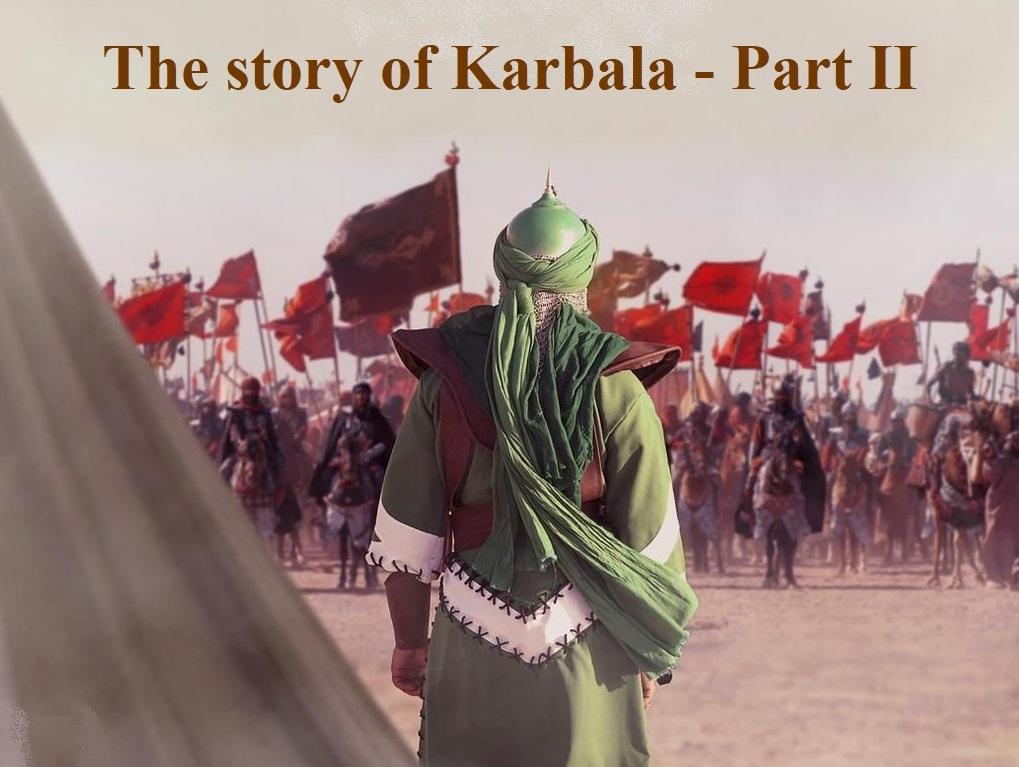Every year Muharram means mourning this death, this martyrdom, as if of one’s own family
"The tragedy is deeply personalised. Every year Muharram means mourning this death, this martyrdom, as if of one’s own family."
By Nasim Zehra
Thenews.com.pk
Hussain’s 70-strong Lashkar, unwaveringly facing thousands, stayed willingly on the path of martyrdom even when on the night of Ashura Imam Hussain blew out all the candles in his tent and invited his companions to leave since the morning was definitely going to bring death and destruction. Already, on the second day of Muharram Imam Hussain had received a messenger from Kufa who had informed him that his dear friend Muslim bin Aqeel and his brother-in-law, the husband of his half-sister and daughter of Imam Ali, Ruqaya Bibi (buried in Lahore in Bibi Pak Daman) had been martyred by the people of Kufa. Hence no support was in sight. And yet no one relented on the night of Ashura.
On Ashura, the beloved family, except women and an ill grandson Zainul Abideen of the Prophet (PBUH), was physically and tragically decimated. Yazid 'won'. But Bibi Zainab, truly in her father Imam Ali’s footsteps, an emblem of courage, knowledge, and oration showed her character and bravery in the court of Yazid, where she, along with other women and children of the Hussaini Lashkar had arrived; chained and chided, she showed that Karbala was to live on. And that Hussain was martyred to keep alive the lesson of Allah’s Quran as transmitted to the Prophet's (PBUH) family and to all Muslims. And indeed the lesson lives on. Yazid and his vile ways found almost no sympathizer centuries later.
The message of Hussain lives on – in a world where global crises are seen within societies as translating into a crisis of the soul and the spirit. As life moves on into more complex corridors of existence the event of Karbala, all-encompassing where the human soul and the spirit and the mind come into unison becomes very relevant.
Karbala is about the cosmic context and content of the human race – of what is Allah’s potentially finest creation. The study of Karbala, of its character, of the dynamics and the beliefs and actions, does therefore give us cosmic wisdom. The great unparalleled event of Karbala encompasses the entire spectrum of being and emphatically communicates to us the intricate linkages between all aspects of the individual and the collective.
Indeed Karbala in today’s conflicted world shows us what it takes to find inner peace and external integrity as we engage with the world. The battles of values, of the soul and the spirit, will only exacerbate with time. There is something to be imbibed from Karbala for those who seek to understand the conflicts of our times.
Nelson Mandela explained the relevance of Karbala centuries later; he is quoted to have once said: “I have spent more than 20 years in prison, then one night I thought of surrendering by signing all the terms and conditions of the government. But suddenly I thought of Imam Hussain and the Karbala movement”.

